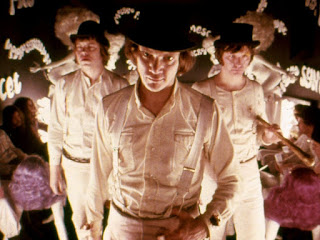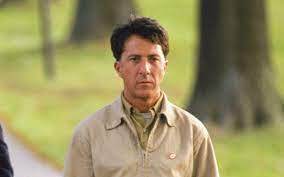Film Review: Rear Window
 |
Before starting this review I'd like to apologise for my recent delays in uploading. For those who do not know, I have just started University and in the time preparing for it and now attending it I have had less time to work on my Blog. With this in mind I have decided to upload every 2-3 weeks instead of every 1-2 weeks. Not only do I think this is a more realistic deadline for me to reach currently, I also believe this will give me more time to find interesting subjects to discuss.
Alfred
Hitchcock is perhaps one of the most recognisable directors of all time. His
films have defined decades of cinema in a large range of genres. As well as
this, his innovations continue to impact media even now, such as the creation
of the Dolly zoom in ‘Vertigo’ or the ways he snuck around censors in ‘Psycho’.
Whilst I can’t say I’ve seen all his films (particularly not some of his
earlier work), I have nonetheless enjoyed all the ones I have. This continued
to be the case with his highly acclaimed 1954 thriller ‘Rear Window’.
‘Rear
Window’ focuses on L.B “Jeff” Jefferies (James Stewart) a photographer confined
to his apartment with a broken leg. To kill the boredom, Jeff passes the time
watching his neighbours through the windows until he believes he witnesses one
of them murder their wife. From there he enlists the help of his wealthy
girlfriend Lisa Fremont (Grace Kelly) in order to gather the evidence that may prove
his suspicions. In this film I feel Hitchcock lives up to his title “the Master
of Suspense”, as the audience is never completely sure if Jeff’s hunch is right
or not, which makes every piece of potential evidence even more satisfying. The
characters being bound mostly to one setting created a strangely claustrophobic
experience, which added to the overall intensity. This all culminates in a
memorable final confrontation that, for the standards of the time, is surprisingly
well executed. As most of the film is dedicated to Jeff and Lisa searching for
evidence, the chemistry between the two is very important. Stewart and Kelly were
surprisingly convincing as a couple considering the age gap between them in
real life, which helped increase my overall engagement. As a result, the film,
while a little slow at the start, proved to be, for its time, a unique and interesting
viewing experience.
Whilst I
personally found ‘Rear Window, to be a gripping and intense watch I can
understand why many modern viewers wouldn’t feel the same way. Compared to the type
of thrillers we’ve seen inn the past few decades such as those from Christopher
Nolan (for example 2000’s ‘Memento’), which are often filled with many
locations and action scenes, this film may feel simple in comparison. As most
of ‘Rear Window’ is set in Jeff’s small apartment, accompanied with small shots
of looking through neighbour’s windows, there isn’t a lot of space for action.
Even the previously mentioned final confrontation lacks the dynamic feeling modern
films can achieve with special effects. As a result, I believe that some
audiences may see this film as tedious and slow. Whilst this is a valid reason
for disliking the film, in fact it was what I thought my opinion would be early
on, I believe it can still be enjoyed as a piece of film history. Even in
modern thrillers, influences from ‘Rear Window’ can be felt. Consider ‘Memento’
where Guy Pierce’s Leonard Shelby has a form of amnesia that prevents him
making new memories whilst trying to catch a murderer, or how in ‘Source Code’
(2011), where Jake Gyllenhaal’s Colter Stevens must relieve the same eight
minutes to find the identity of a terrorist. These situations restrict their
leads in a comparable way to how Jeff’s broken leg limits him. Whether these
similarities were intentional or I’m simply overthinking it, these comparisons show
how films such a ‘Rear Window’ paved the way for modern thrillers by adding a
twist or restrictions to a simple concept like catching a criminal to create a
unique film. For this reason, I feel that, even if the audience isn’t a fan of
this film, they can respect it for it’s influences on films they may enjoy.
Perhaps the
most interesting part of ‘Rear Window’ is how it handles its idea of voyeurism.
Along with the neighbour Jeff suspects of being a murderer, we also get
glimpses of the lives of his other neighbours. These range from a newlywed
couple, a struggling music composer and a single woman desperate for love,
along with many others. Here I feel Hitchcock applies the skills he developed
in silent film expertly, creating emotionally compelling micro-narratives,
which would work well enough as their own short films. We’re able to laugh at
their mishaps, empathise with their struggles and feel happy for their
successes without even hearing them speak. But despite how entertaining these scenes
are, the viewer is also made to feel guilty for watching them. Whenever Jeff
(and by proxy the viewer) look through the neighbours’ windows, the supporting
cast frequently chastise him, asking what he’d do if he gets caught. This all best
shown in a discussion between Jeff and Lisa where they both feel guilty about
hoping their neighbour is a murderer but also want their theory to be true. Through
this Hitchcock seems to subtly critique the audience themselves for being as
invested in the lives of their neighbours as Jeff and Lisa are as well as any
real-life instances of this. Whilst all of this is never the focus of the film,
these themes added a good layer of depth for me that made it an even more
compelling watch.
In
conclusion, ‘Rear Window’ is a suspenseful and intelligent thriller that firmly
cements Alfred Hitchcock as the revolutionary storyteller he’s seen as. Whilst
this isn’t my favourite of his (that slot is still taken by ‘Psycho’) it is
nonetheless a film I can see myself rewatching many times. If for no other
reason, I feel this film should be watched to see how thrillers have evolved
over time but in some ways are still very similar to how they were in the
1950’s. More recently Amazon released a new original film ‘The Voyeurs’, which
has a premise remarkably similar to this film. While the initial reception to ‘The
Voyeurs’ has been largely negative compared to the high acclaim of ‘Rear
Window’, I believe it serves as a sign that Hitchcock’s stories are still just
as relevant today.



Comments
Post a Comment